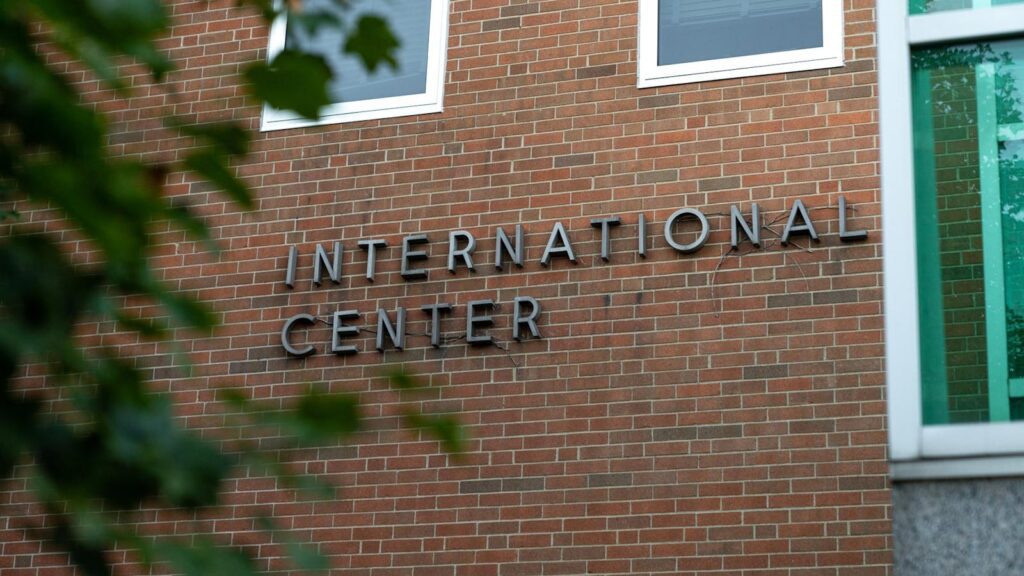Fewer people are studying foreign languages at Michigan State University this semester.
That’s because the federal government has slashed funding for grant programs that have historically supported such scholarship across the country.
The Department of Education has for decades administered National Resource Centers (NRCs), which were conceived during the Cold War as a means for the U.S. to enhance its understanding of international affairs. The DOE has also long distributed Foreign Language and Area Studies (FLAS) fellowships — which pay for undergraduate and graduate students’ tuition when studying in such fields.
Five MSU centers have in years past received funding through the federal government’s National Resource Center program: the Center for Language Teaching Advancement, and the Center for International Business Education and Research, the Center for Latin American Studies and Caribbean Studies, African Studies Center, Asian Studies Center. Students in the latter three have, in addition, historically received FLAS fellowships.
The MSU administrators who run those centers told The State News that they were notified by the DOE in September that they would not be receiving new grant funding for this academic year.
Center for Language Teaching Advancement (CELTA) project manager Emily Uebel said her center received a notice from the DOE saying the cut programs “are inconsistent with Administration priorities and do not advance American interests or values.”
While some of the impacted MSU centers are currently using leftover funds allocated in previous years, the administrators said dozens of undergraduate and graduate students who have previously studied foreign languages aren’t this year thanks to the cuts. Faculty members and students who’ve participated in the relevant programs broadly lament the new reality, arguing for the importance of foreign language scholarship in a globalized society.
“Whatever your ideological position might be, it’s very important for all of us to be able to get along and to understand one another,” said Siddhartha Chandra, the director of MSU’s Asian Studies Center. “You can call it diversity. You can call it something different. The fact of the matter is, we have an enormous amount of diversity in the country, and it’s important for us to understand each other, and I think the same applies to the world.”
The exact number of language offerings that have been rescinded thus far is unknown.
African Studies Center Director Leo Zulu said the center currently offers 30 African languages, but that because of the cuts, he expects it will be forced to scale back to around five. Uebel said the Center for Language Teaching Advancement has already cut three languages this academic year: Tamil, Khmer and Persian.
Zulu also said the African Studies Center is looking for alternative funding sources to make up for the shortfall. The center is in talks with The Graduate School for financial support and has also applied to the Jenison Fund, an initiative housed in MSU’s President’s Office aimed at financially supporting graduate students who have had federal funding disrupted.
Zulu stressed that the disruption in funding for this fellowship creates a barrier for many graduate students to complete their studies: “These students need these languages to complete their research: dissertation research and thesis research.”
Ryan Kachnowski, a graduate student studying Spanish Literature, was notified in September that this year he would only be receiving half of the money he’s gotten previously. He’ll use it to study Portuguese in the spring, he said.
But because he and others were only notified about the funding well into the school year, after the deadline to add classes had passed, several missed out on enrolling in language courses for this semester, Kachnowski said.
Center for Latin American and Caribbean Studies Director Laurie Medina said the FLAS fellowship has also provided financial support for studying indigenous languages of Latin America and Haitian Creole. Her center had anticipated the grant funding might be cut after reading Project 2025, a paper published in 2023 by conservative think tank Heritage Foundation laying out a blueprint for a then-prospective second Trump administration.
While she noted some students in her center are funded through the end of the grant period in August 2026, the future beyond that is uncertain.
During the fourth year of the grant cycle, a competition is held nationwide to determine what institutions receive it, Medina said, but that competition has not yet been announced. That, combined with the elimination of the DOE office that has historically managed the grant programs, she added, means the funding is “not expected to return.”
Chandra, the director of the Asian Studies Center, said the cut grants hold great value for the country’s “national interest.”
“If we have young Americans who know about a particular culture, know the language, how people work there, how people think, it will enable businesses and non-profits for which they work, for example, to engage more effectively with people from those cultures,” Chandra said.
Support student media!
Please consider donating to The State News and help fund the future of journalism.
Discussion
Share and discuss “Trump administration cuts diminish foreign language education at MSU” on social media.

